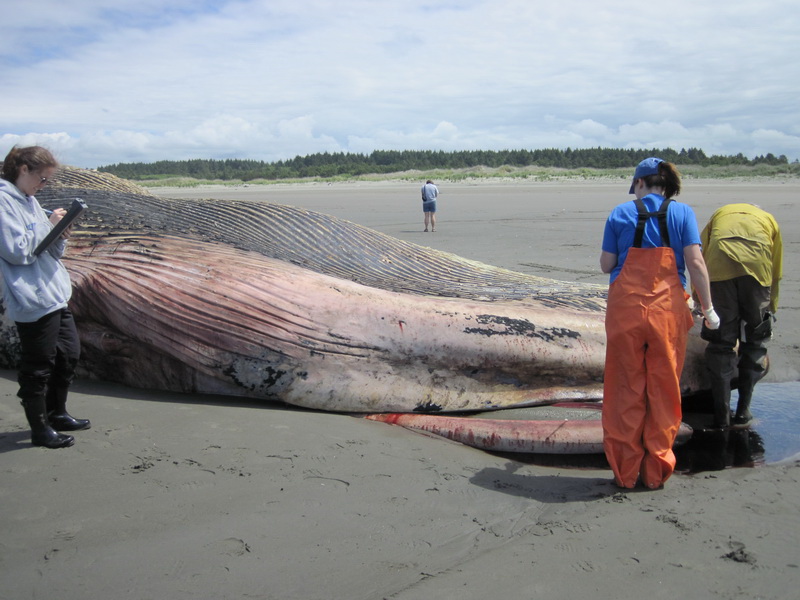- Blog
- Sustainable Economic Systems
- Another whale likely killed by a ship strike
Another whale likely killed by a ship strike

Donate Now!
Your contribution will benefit Friends of the Earth.
Stay Informed
Thanks for your interest in Friends of the Earth. You can find information about us and get in touch the following ways:
On Thursday morning, a 68-foot long fin whale was found dead in the sand at a beach located in Ocean Shores, Washington on the outer coast near Grays Harbor. Biologists from Cascadia Research and the Washington Department of Fish and Wildlife concluded that the fin whale was likely killed by a ship, judging by signs of blunt force trauma near the whale’s head. This is the 11th documented whale death in Washington since 2002, and this number is suspected to only represent a tenth or less of the true number of whales killed. Ship strikes of whales are becoming a widespread concern. In 2007, at least five blue whales were killed as a result of ship strikes in southern California. Ships currently pose a serious threat to endangered fin whales and the many other threatened and endangered whale populations in our oceans.
One relatively easy way to minimize ship strikes is to reduce ship speed. As exhibited by efforts on the East Coast where ship speed limits are already in place, reducing ship speed can protect whales by decreasing the risk of collision and reducing underwater noise pollution. According to a report by the National Marine Fisheries Service, a reduction to a speed of 10 knots could potentially reduce the risk of a ship collision with a whale by 40 percent. Furthermore, not only do slower ships use less fuel which could reduce costs for the shipping industry, but they also emit fewer air pollutants including greenhouse gases like black carbon, reducing harm to our climate and public health.
Compared to the East Coast, whale species along the West Coast are much less protected. However, ports along the California coast (Los Angeles, Santa Barbara Channel and San Francisco Bay) have begun rerouting existing shipping lanes in an effort to reduce the presence of ships in areas whales are known to frequent. In addition, Whale Aware has developed an app for tablets and smartphones that allows citizen scientists to keep track of whale sightings. While these changes are a positive step in the right direction towards whale protection, there is still room for improvement especially in light of this most recent whale death from a ship strike.
Photo Credit: Courtesy of Cascadia Research
